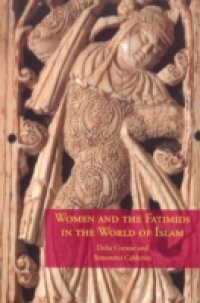This first full-length study of women and the Fatimids is a groundbreaking work investigating an unexplored area in the field of Islamic and medieval studies. The authors have unearthed a wealth of references to women, thus re-inscribing their role in the history of one of the most fascinating Islamic dynasties, the only one to be named after a woman. At last some light is thrown on the erstwhile silent and shadowy figures of women under the Fatimids which gives them a presence in the history of women in medieval and pre-modern dynasties. Basing their research on a variety of sources from historical works to chronicles, official correspondence, documentary sources and archaeological findings, the authors have provided a richly informative analysis of the status and influence of women in this period. Their contribution is explored first within the context of Isma'ili and Fatimid genealogical history, and then within the courts in their roles as mothers, courtesans, wives and daughters, and as workers and servants. Throughout the book comparison is drawn with the status and roles of women in earlier, contemporary and subsequent Islamic as well as non-Islamic courts.

